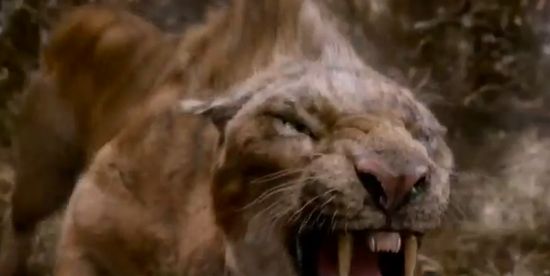Is "After Earth" the worst movie ever made? Maybe not; there's always "Battlefield Earth" to remind us how low the bar can go. But that's the wrong question, since it implies that this bizarre enterprise is a movie in the conventional sense.
At first the production exhibits movielike characteristics, a sort of "Star Trudge" crossed with a hero's journey by way of Joseph Campbell. The story begins on a planet that has served as humanity's refuge since Earth became uninhabitable. Will Smith is Cypher Raige, the commanding general of a U.N.-sanctioned peacekeeping group—I'm only reporting what's on the screen—called the United Ranger Corps. Mr. Smith's son, Jaden Smith, is the general's son, Kitai, a painfully earnest 13-year-old who's desperately seeking approval from his authoritarian father, even though the old man seems to have no approval to give. Despite the sci-fi trappings, and dollops of almost literally unspeakable dialogue—"Graviton buildup could be a precursor to mass expansion," someone warns someone else—"After Earth" is basically a two-character study of what happens to father and son after their spaceship crashes on a quarantined planet that is, in fact, Earth, but Earth infested with exceedingly cheesy digital monsters.
Here again, the action conforms to a recognizable movie template. With his father gravely injured and unable to extricate himself from the ship's wreckage, Kitai must summon the courage to go forth on his own and fight whatever demons come his way in order to find the electronic beacon that will bring lifesaving help. In other words, a familiar tale of a boy surviving vicissitudes to become a man. Yet this variant of the template, as directed by M. Night Shyamalan from a script he wrote with Gary Whitta—and based on a story by Mr. Smith—soon takes the form of turgid pontifications that Cypher lays on Kitai at every step of the poor kid's way. (They're connected by a fancy communication system that only emphasizes the disconnections of the quasidramatic structure.) "Every single decision you make will be life or death," the general intones. Or, rather, "Every...single…decision…you…make…will…be…life...or...death," because every…single…word…the…general…speaks…is…spoken…slowly…for…emphasis. It's gravity without gravitas.
I've never seen a movie that moves so slowly, or takes itself so seriously, which is why it doesn't seem like a movie at all, but a sermon whose central subject is fear: "Danger is real," the father tells the son, "but fear is a choice." So a right question might be why "After Earth" was made. The sermon echoes a central theme of Scientology. Is that the production's subtext, or are there reasons yet to be uncovered why humor and humanity have been essentially banished; why everyone looks pained; why the very notion of entertainment has been banished in favor of grinding didacticism, and why Mr. Smith, who has been such a brilliant entertainer over the years and decades, looks as if he has undergone a radical charismaectomy? It…is…all…very…mysterious…and…deeply…dreary.
 |
| One of said cheesy monsters |

hello everyone this is m night shyamalan and i just want to say to all those who have seen my movie "after earth", i want to say "suckers!!! made you look!" haha. yes, my future as a director is over. but hey theres still porn...
ReplyDelete